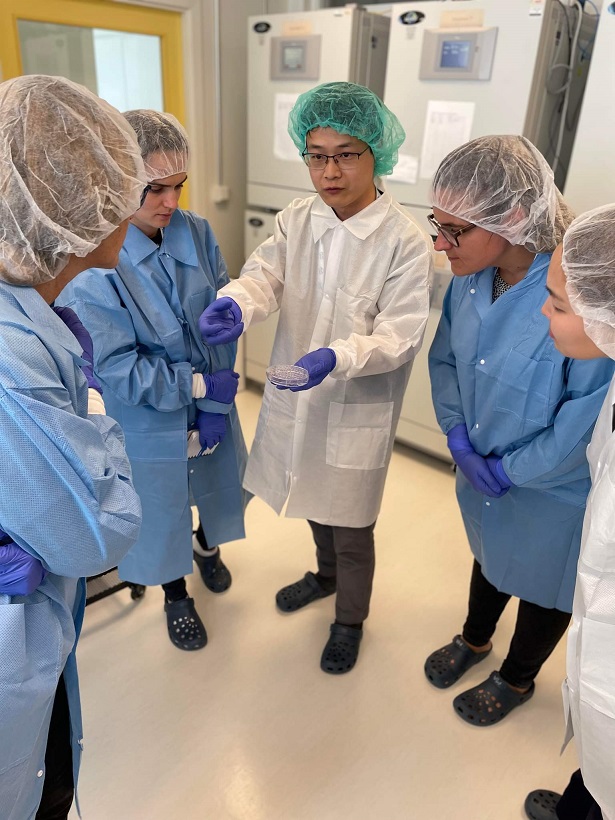About the project
Our mission is to conduct cutting-edge research in life science disciplines to develop future models for treatment and cure of diabetes. Diabetes is a global chronic disease, impacting daily life and can have long term severe consequences for patients such as blindness, kidney failure, stroke, leading to premature death. Restoring the body insulin by introducing functional healthy insulin producing islets to patients is an effective solution, but donor material is extremely limited and accessing the pancreas tissue from deceased donors is a complex and lengthy process.
This convergence environment will integrate our knowledge of islet biology and differentiation pathways, together with expertise in matrices and acoustic-mechanical stimuli to develop novel differentiation protocols. By applying deep learning and modeling approaches, we will optimize these protocols to improve differentiation efficiency and functionality. Development of such model systems could enable (i) therapeutic transplantation to cure diabetes, (ii) studies of diabetes development and progression, (iii) drug-screening for more effective treatments of diabetes.
We will apply advanced analytical tools (such as deep learning) to investigate the different data types that will be generated in the work to aid optimization of protocols. Finally, in spite of the central role in development, stem cells remain a controversial and often misunderstood concept. We will therefore encapsulate collected knowledge into an education platform in an endeavour to foster better communication related to this topic.
Primary objectives
To develop future models for diabetes research by using new strategies for stem cell differentiation.
Secondary objectives
- Develop islet organoids from human iPS by direct differentiation in combination with pathway sensors and novel methods generated from controlled mechanical/acoustic-based perturbations
- Apply deep learning approaches to predict islet organoids reproducibility
- Develop an education app to aid education related to stem cell-based research for diabetes
- Establish a life science consortium of researchers from the department of musicology and physics at UiO, computational and cell biology at OUS, and three Center of Excellence (CoE) (RITMO, HTH, CCSE).
IPITA workshop June 19 - 21 2022

Members from the ABINO project hosted the?10th IPITA workshop June 19 - 21 2022.?The members held workshops in 3D bioprinting of cell-laden scaffolds, generation of stem cell derived organoids models and engineering of organ-on-a-chip platforms. Hanne Scholz chaired a session on?"Enabling technologies for beta cell transplantation" and Stefan Krauss gave an introduction to metabolism on chip. Thanks to the UiO:LifeScience and the University of Oslo for conference support.
?
?
ABINO presentations
From Oslo Life Science Conference 2021
"Music for stem cells: Aiming to cure diabetes with sound waves"
Recording of whole event: https://youtu.be/gjohncDORAU
?
Recording of individual presentations and sections
Indroduction by project leader Hanne Scholz
?
Presentation by Chencheng Wang
?
Presentation by Thomas Combriat
?
Presentation by Dongho Kwak
?
Musical interlude by Dongho Kwak and Qichao Lan
?
Panel discussion with: Alexander R. Jensenius, Hanne B. Scholz, Dag K. Dysthe and Anne Danielsen.
?
?
?
?
